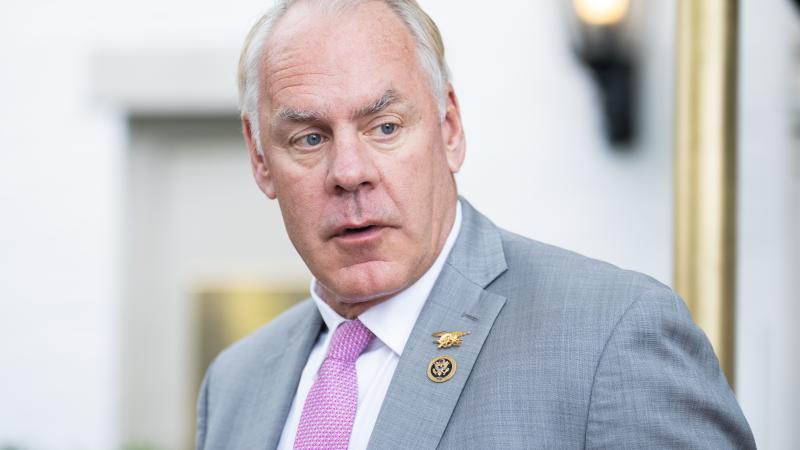Social media users frustrated companies don't have to apply $7,500 federal tax credit to EV leases
Individuals can apply for the $7,500 tax credit after purchasing a new electric vehicle, per IRS rules in accordance with the Democrats' $740 billion Inflation Reduction Act.
The Internal Revenue Service has rolled out updated guidance on the $7,500 federal electric vehicle tax credit, and social media users are frustrated that leasing companies don't have to apply the federal tax credit as savings for consumers on new leased EVs.
Individuals can apply for the $7,500 tax credit after purchasing an electric vehicle as part of the Democrats' $740 billion Inflation Reduction Act.
Under the IRS rules, applicants are eligible for the taxpayer-funded credit if they buy the new EV for their own use in the U.S. and not for resale. The applicants' modified adjusted gross income (AGI) cannot exceed $300,000 for married couples filing jointly, $225,000 for heads of households or $150,000 for all other filers.
EVs such as Tesla's Model 3 are eligible for the $7,500 tax credit, but the company isn't required to pass the credit on to customers who lease. If the customer purchases the car outright, they would be eligible to apply for the $7,500 tax credit.
Tesla and Ford are among the manufacturers with models covered by the credit because they are assembled in North America. The vehicle models eligible for the credit are subject to change in the future due to the rules in the legislation related to EV battery sourcing.
"@elonmusk I just ordered a model Y lease," wrote Twitter user Igor Rivilis. "Why is @Tesla not passing the $7,500 EV Tax Credit on to me as per IRS Guidance? I feel ripped off."
Another user said a Tesla support representative told him there isn't a tax credit available for people who lease their eligible models.
"I just did another 2 hours wait for Tesla customer support," the user wrote. "The person who answered my call said that EV credit is only for a purchased car and there is no EV tax credit for a lease. Same answer was given when I did another chat session on Tesla website. Frustrated!"
A Twitter user named Nino expressed frustration that lawmakers didn't require companies to pass the credit on to consumers who choose to lease rather than buy.
"You see that is the problem," he wrote. "I know at least 5 people that would lease the tesla if [they] get 7500 credit. Some people say you get it, some people say you don't.
There is a separate commercial clean vehicle credit available totaling $7,500 that vehicle leasing companies with models assembled outside of North American can qualify for, but they aren't required to pass that credit along to the leaseholder either.
"Businesses and tax-exempt organizations qualify for the credit," according to the IRS guidance. "There is no limit on the number of credits your business can claim."
Uncertainty about how the tax credit works on leases has caused considerable confusion among the public.
"What happens if you lease?" asked Twitter account EV Advocate. "Does the dealer get the $7,500 or does it get passed on to the lessee?"
Another user wrote: "Does anyone know for cars that are being leased if @Tesla, @elonmusk plans to pass on the $7500 IRA tax credit to the customer, if they do it will make the cars very very attractive to lease and fuel more demand."
Just the News reached out to Tesla to ask if they are passing on the tax credit to new leases but did not receive a response before press time.
Volkswagen is currently advertising that it plans to voluntarily apply the $7,500 federal credit to leases of its new, fully electric ID.4 SUV, according to a dealer in Las Vegas.
Even as the federal government continues to dangle tax credits to boost demand for EVs, some Wyoming state legislators have proposed a ban on EV adoption until 2035. Wyoming state Sen. Brian Boner, a Republican, said states like California have banned the sale of gas vehicles by 2035 without a national conversation about the challenges EVs pose to the power grid.
"This symbolic resolution is meant to provoke a larger discussion about the effectiveness of unrealistic policies which have significant consequences for our quality of life," he said. "I hope we can have a good discussion about the technical challenges associated with changing vehicles from using an internal combustion engine to powering our vehicles using the same grid that powers our homes and businesses. I don’t see a coherent plan to make that transition in a way the preserves the reliability of the Western energy grid."















